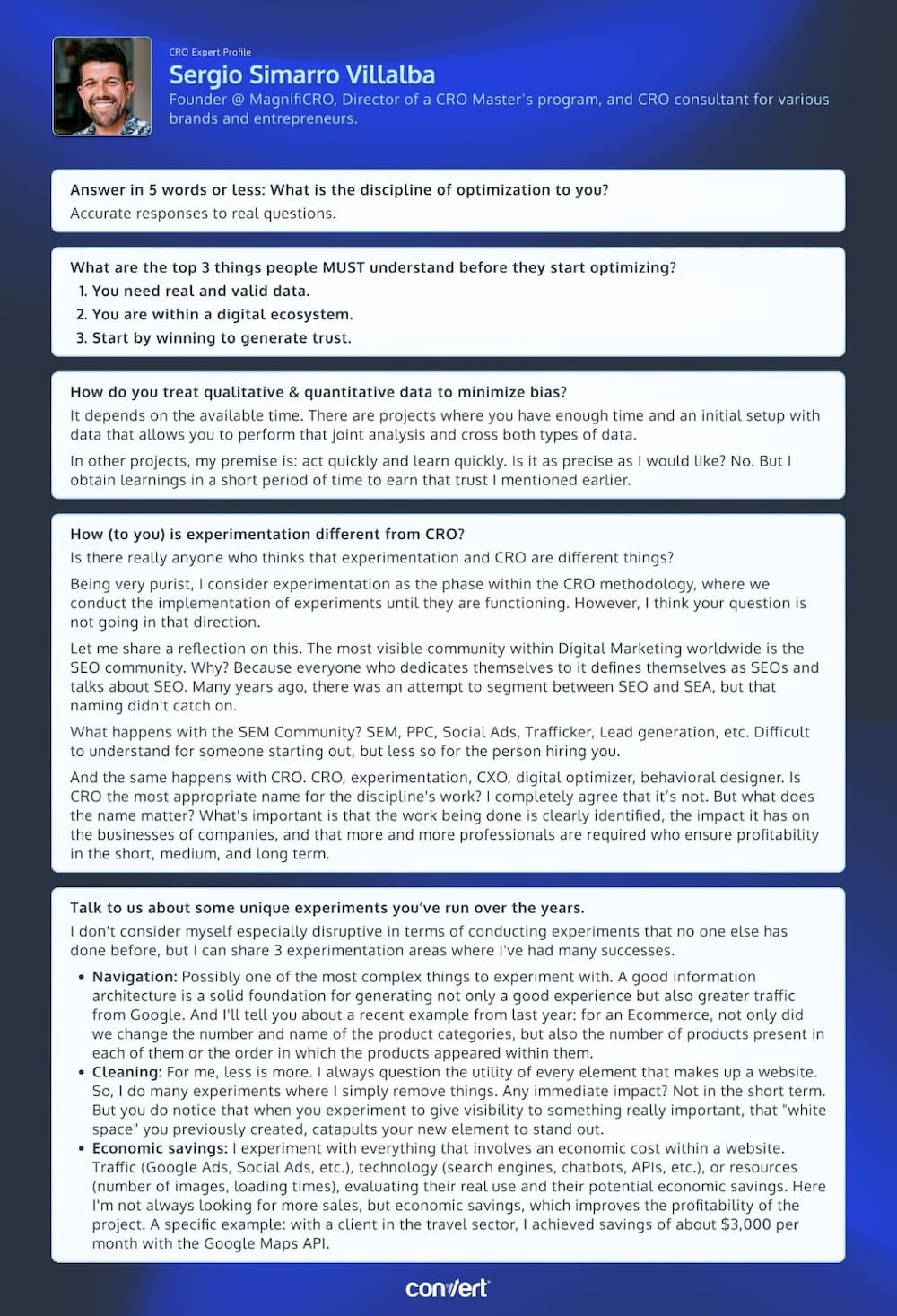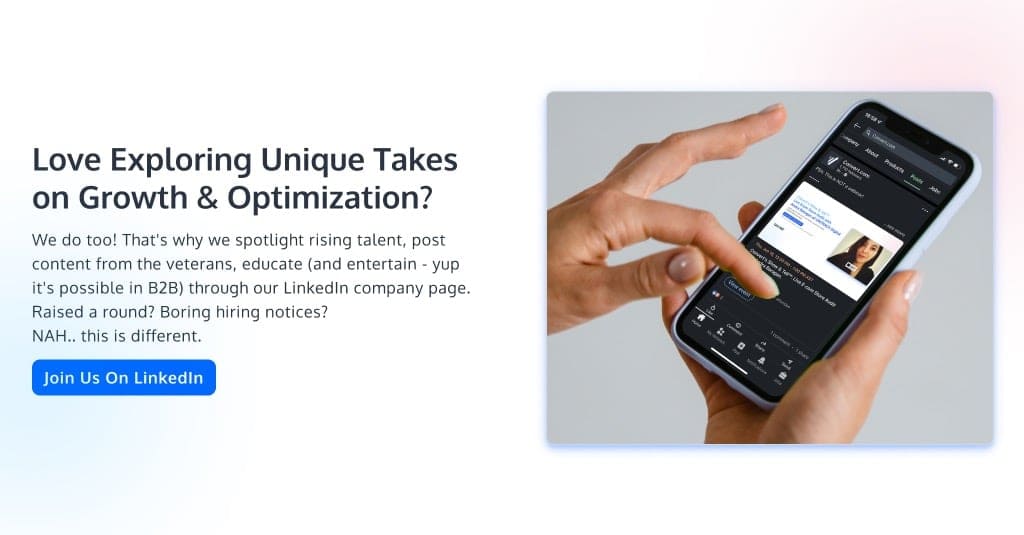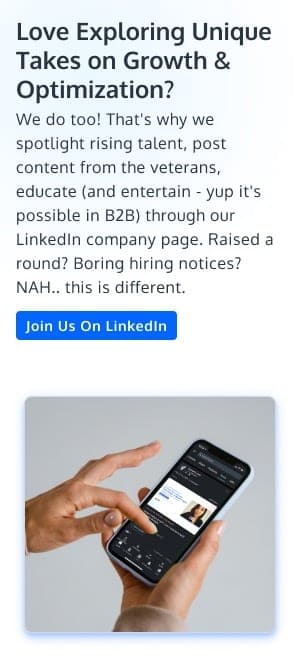Testing Mind Map Series: How to Think Like a CRO Pro (Part 53)
Interview with Sergio Simarro Villalba
Every couple of weeks, we get up close and personal with some of the brightest minds in the CRO and experimentation community.
We’re on a mission to discover what lies behind their success. Get real answers to your toughest questions. Share hidden gems and unique insights you won’t find in the books. Condense years of real-world experience into actionable tactics and strategies.
This week, we’re chatting with Sergio Simarro Villalba, founder of MagnifiCRO, the most widely read CRO newsletter in Spanish, Director of a CRO Master’s program, and CRO consultant for various brands and entrepreneurs.
Sergio, tell us about yourself. What inspired you to get into testing & optimization?
Hello, Convert Friends! My name is Sergio and I live in Alicante, Spain. I’ve been working in Digital Marketing since the year 2000. It was in those early years that I started to become interested in optimization. Back then, I worked on developing websites. I was keen to understand if the work I was doing was profitable for the company paying me. So, I began to delve into SEO and Analytics, wanting to improve based on the data I was seeing. I think one of the first areas that caught my attention for optimization, and which I began to frequently work on, was loading times.
Currently, I work as a CRO Consultant for brands and entrepreneurs, as well as offering profitability improvement services for agencies and freelancers in Digital Marketing.
I’m so immersed in CRO, I also write MagnifiCRO – one of the CRO newsletters in Spanish with the largest follower base – and I’m the Director of a CRO Master’s program.
However, if you want to know more about my professional career, here’s my LinkedIn.
Additionally, if you find me away from the screens, I’m likely to be engaged in sports or with dogs.
How many years have you been testing for?
Understanding testing from a professional standpoint and with a certain methodology, I’d say about 10 years. It’s true that I believe it’s particularly in the last 5 years that I’ve really settled into the sector, trying to spread knowledge about CRO methodology.
What’s the one resource you recommend to aspiring testers & optimizers?
Any discipline in Digital Marketing requires constant learning, so anyone who wants to professionalize needs to read at least weekly and on a very varied range of topics. Let me give you an example; in each delivery of my newsletter MagnifiCRO, I share 5 resources that I found very interesting. But previously, I will have read about 30-50 that I consider not relevant enough to share.
Answer in 5 words or less: What is the discipline of optimization to you?
Accurate responses to real questions.
What are the top 3 things people MUST understand before they start optimizing?
You need real and valid data. Every optimization process starts with an initial analysis. If you don’t have data, it is insufficient, or you are certain the data is incorrect, it will be very difficult to understand the real problem.
You are within a digital ecosystem. Your work impacts and needs consistency with other areas such as traffic acquisition, design, UX, CRM, development, etc; and of course, the business unit. If you don’t understand the organizational charts, communication flows, or priorities, you won’t achieve anything.
And speaking of priorities: start by winning to generate trust. When tackling an optimization project, there are hundreds of possible improvements to achieve. Therefore, it is necessary to know how to prioritize and choose how you will start. You won’t conduct the definitive experiment in your first iteration, but you will show that you know how to do it and thus earn the trust of those who have hired you.
How do you treat qualitative & quantitative data to minimize bias?
It depends on the available time. There are projects where you have enough time and an initial setup with data that allows you to perform that joint analysis and cross both types of data.
In other projects, my premise is: act quickly and learn quickly. Is it as precise as I would like? No. But I obtain learnings in a short period of time to earn that trust I mentioned earlier.
How (to you) is experimentation different from CRO?
Is there really anyone who thinks that experimentation and CRO are different things?
Being very purist, I consider experimentation as the phase within the CRO methodology, where we conduct the implementation of experiments until they are functioning. However, I think your question is not going in that direction.
Let me share a reflection on this. The most visible community within Digital Marketing worldwide is the SEO community. Why? Because everyone who dedicates themselves to it defines themselves as SEOs and talks about SEO. Many years ago, there was an attempt to segment between SEO and SEA, but that naming didn’t catch on.
What happens with the SEM Community? SEM, PPC, Social Ads, Trafficker, Lead generation, etc. Difficult to understand for someone starting out, but less so for the person hiring you.
And the same happens with CRO. CRO, experimentation, CXO, digital optimizer, behavioral designer. Is CRO the most appropriate name for the discipline’s work? I completely agree that it’s not. But what does the name matter? What’s important is that the work being done is clearly identified, the impact it has on the businesses of companies, and that more and more professionals are required who ensure profitability in the short, medium, and long term.
Talk to us about some of the unique experiments you’ve run over the years.
I don’t consider myself especially disruptive in terms of conducting experiments that no one else has done before, but I can share 3 experimentation areas where I’ve had many successes.
- Navigation
Possibly one of the most complex things to experiment with. A good information architecture is a solid foundation for generating not only a good experience but also greater traffic from Google. And I’ll tell you about a recent example from last year: for an Ecommerce, not only did we change the number and name of the product categories, but also the number of products present in each of them or the order in which the products appeared within them.
- Cleaning
For me, less is more. I always question the utility of every element that makes up a website. So, I do many experiments where I simply remove things. Any immediate impact? Not in the short term. But you do notice that when you experiment to give visibility to something really important, that “white space” you previously created, catapults your new element to stand out.
- Economic savings
I experiment with everything that involves an economic cost within a website. Traffic (Google Ads, Social Ads, etc.), technology (search engines, chatbots, APIs, etc.), or resources (number of images, loading times), evaluating their real use and their potential economic savings. Here I’m not always looking for more sales, but economic savings, which improves the profitability of the project. A specific example: with a client in the travel sector, I achieved savings of about $3,000 per month with the Google Maps API.
Thank you for having me and for such insightful questions. It was a pleasure to be part of this conversation.
Our thanks go out to Sergio for taking part in this interview! To our lovely readers, we hope you found the insights useful and encourage you to apply them in your own optimization efforts.
Don’t forget to check back twice a month for more enlightening interviews! And if you haven’t already, check out our past interviews with CRO pros Gursimran Gujral, Haley Carpenter, Rishi Rawat, Sina Fak, Eden Bidani, Jakub Linowski, Shiva Manjunath, Deborah O’Malley, Andra Baragan, Rich Page, Ruben de Boer, Abi Hough, Alex Birkett, John Ostrowski, Ryan Levander, Ryan Thomas, Bhavik Patel, Siobhan Solberg, Tim Mehta, Rommil Santiago, Steph Le Prevost, Nils Koppelmann, Danielle Schwolow, Kevin Szpak, Marianne Stjernvall, Christoph Böcker, Max Bradley, Samuel Hess, Riccardo Vandra, Lukas Petrauskas, Gabriela Florea, Sean Clanchy, Ryan Webb, Tracy Laranjo, Lucia van den Brink, LeAnn Reyes, Lucrezia Platé, Daniel Jones, May Chin, Kyle Hearnshaw, Gerda Vogt-Thomas, Melanie Kyrklund, Sahil Patel, Lucas Vos, David Sanchez del Real, Oliver Kenyon, David Stepien, Maria Luiza de Lange, Callum Dreniw, Shirley Lee, Rúben Marinheiro, and our latest with Lorik Mullaademi.



